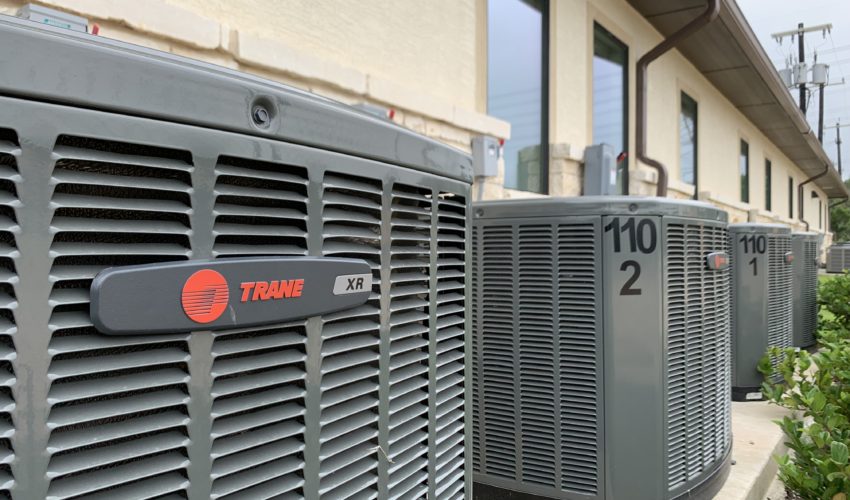If you live and work in San Antonio and surrounding areas, you know the importance of a high-functioning HVAC system in your residence or commercial facility. Our extreme temperature fluctuations and brutal summer heat mean that a sub-optimal HVAC setup can make a big difference in the cost of maintaining the comfort of your home and business.
Given South Central Texas’s propensity for heat, you may think that the bigger your HVAC unit, the better. After all, more horsepower in a vehicle means you’ve got the power when you need it, and no harm done when you don’t. However, a HVAC that is too big OR too small can cause major issues.
Bigger Isn’t Always Better
A HVAC that is too big for your residence or commercial facility doesn’t mean you’re able to harness that extra power when the temperatures climb towards triple digits. An oversized HVAC results in the following issues:
-
- Short Cycling. A unit that short cycles is one that turns on and off frequently and is a common result of an oversized air conditioner or furnace. This short cycling means that your unit is working harder, using more energy and is cooling or heating much less effectively and efficiently than if it were the proper size. The constant on and off results in inconsistent temperatures and can even result in an annoying discrepancy in noise levels.
- More Frequent Breakdowns. The constant short cycling of that oversized unit creates a ton of unnecessary wear and tear on your HVAC equipment, resulting in parts failing sooner than they should and more frequent tune ups from your service technician. Those breakdowns can mean consistent disruption, all resulting in headaches for you.
- Reduction in Comfort. One of the most common complaints that comes from an oversized HVAC is an overall reduction in comfort. A unit that is too large cools too quickly to properly dehumidify the air, shutting off before the evaporator coil can collect enough moisture from the air to eventually expel. A properly sized air conditioning unit will achieve the right balance between your desired air temperature and dehumidifying appropriately.
…But An Undersized Unit Causes Problems, Too
A too-small residential or commercial HVAC isn’t exactly a good alternative to an oversized unit. If your HVAC is too small for your home or facility, you’ll find that your unit is constantly running and your comfort level is never quite right. If your unit is too small, you’ll find you have:
- Sky-High Electric Bills The constant use at maximum capacity means you’re going to be wincing every time you receive your energy bills. There’s no reason to overpay every month for an underperforming unit.
- Loss of Temperature Control. A unit that’s too small is never going to provide the level of control over your climate that you’d like — by definition it’s undersized for your building or home. You’ll likely find yourself continuing to crank down the thermostat in summer and bundling up with extra sweaters in the winter in pursuit of the right temperature.
- More Breakdowns. Yes, more breakdowns happen here, too! When your unit is undersized, it’s being pushed beyond its capacity. Similar to when a unit is too big, your commercial HVAC or residential air conditioner will break down more often and require more frequent service than if it were properly sized.
How to Find the Right Residential or Commercial HVAC Unit
If you suspect your commercial HVAC unit isn’t properly sized or if you’re anticipating replacing your residential air conditioner anytime soon, give us a call for our consultative expertise. There are many considerations beyond just square footage when evaluating the right unit for your home or building, and simply replacing your unit with a similar, updated model may mean you’re selecting a newer, incorrectly sized unit. We’ll consider every element to ensure you reap all the benefits and avoid the pitfalls of an incorrectly sized HVAC.


